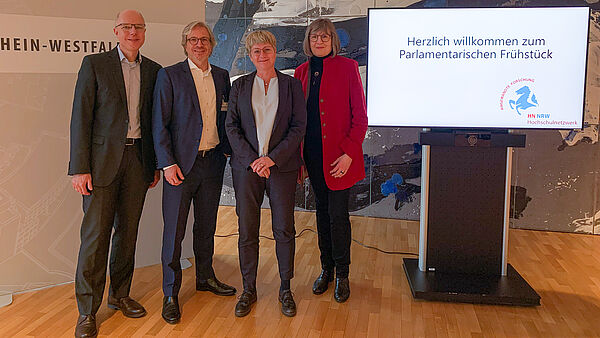Prof. Dr.-Ing. Wolfram Schenck from Bielefeld University of Applied Sciences and Arts and Prof. Dr. Dr. Dr. Carsten Röcker from the Technische Hochschule Ostwestfalen-Lippe (TH OWL) represented the SAIL project at this event and presented the project to an interested audience. In their five-minute presentation, they emphasized the need for sustainable AI that is not only transparent and human-centric, but also meets ethical standards and conserves resources.
The SAIL project focuses on the entire life cycle of intelligent technical systems (ITS), taking into account social needs and minimizing environmental impact. A central aspect of this is the reduction of biased models and potential risks, while focusing on the efficient use of resources.
Prof. Schenck and Prof. Röcker emphasized the results-oriented cooperation and the outstanding network of the four universities - the Universities of Bielefeld and Paderborn, Bielefeld University of Applied Sciences and Arts and the Technische Hochschule Ostwestfalen-Lippe (TH OWL). This interdisciplinary research tradition enables the SAIL project to develop innovative solutions for sustainable ITS.
The event not only offered the opportunity to present the research results of the SAIL project, but also created a space for a lively exchange between researchers and political decision-makers. The SAIL team is looking forward to further advancing the discussion on sustainable AI and translating the developed solutions into concrete applications to have a positive impact on society and industry.


